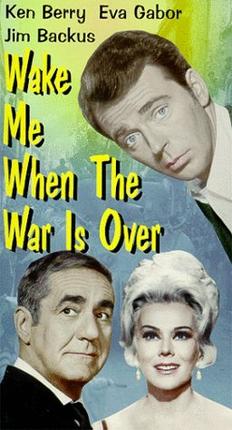Plot
The film tells the story of the amazingly naive and inept Lieutenant Roger Carrington (Berry) of the United States Army Air Forces beginning in January 1944 during World War II. After accidentally falling out of a C-47 when attempting to drop airborne leaflet propaganda, he lands in German territory. Escaping pursuing German soldiers, he is hidden by a local baroness named Marlene (Gabor). Luckily, Marlene is against the Nazis, and sympathizes with Carrington, taking him under her wing to recover, and eventually falling in love with him.
Unfortunately, when World War II ends, Marlene realizes that Carrington will leave when he finds this out. Not wanting him to go yet, she decides not to tell him about the war ending so he will stay, and she manages to keep him with her for nearly five years, explaining the Allies are continuously losing, then recapturing England. Around then is when Carrington convinces himself that it's his duty to continue fighting on a one man sabotage operation. He leaves Marlene's estate, not realizing he's now in a peacetime country. The only problem is, no one can tell him the war is over because no one around him speaks English including the Baroness' maid Eva who accompanies him.
This page is based on this
Wikipedia article Text is available under the
CC BY-SA 4.0 license; additional terms may apply.
Images, videos and audio are available under their respective licenses.
